Chinese ‘Teapots Refiners’ Behind Large Bulk Of Iran’s Oil Revenues
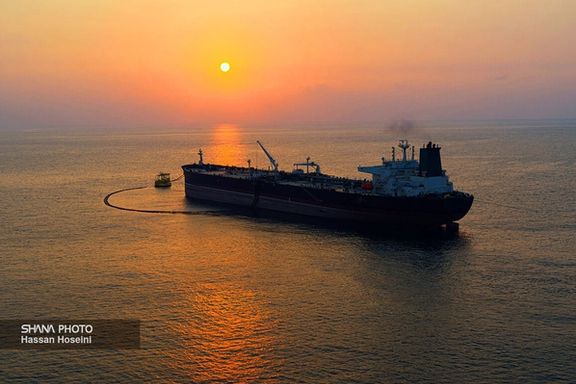
Small independent Chinese refineries are behind the surge in Iran’s oil revenues, says an advocacy group that works to expose those who help Tehran evade economic sanctions.

Small independent Chinese refineries are behind the surge in Iran’s oil revenues, says an advocacy group that works to expose those who help Tehran evade economic sanctions.
The Washington Free Beacon cited information obtained by United Against a Nuclear Iran (UANI) to reveal a network of Chinese petrochemical refiners, or "teapots," behind the upswing in illicit Iranian crude oil trade, saying they provided the Islamic Republic with at least $22 billion in revenue since President Joe Biden took office.
These Chinese private firms, which are not state-controlled, are primarily responsible for "funding this illicit and uniquely lucrative trade" with Iran, the report said, adding records seen by the UANI detailed at least 40 different shipments of Iranian oil to China dating back to 2019.
The information about small refiners buying Iranian oil is not new but the details in UANI’s report shed further light on the illicit trade.
"Since the US has in fact sanctioned Chinese state-owned imports in the past, such as Zhuhai Zhenrong, the decision to import Iranian oil via dozens of small unaffiliated ‘non-state' firms helps obscure the Chinese government's role and protect its own big firms from scrutiny, accountability, and attendant sanctions," a brief issued said.
Earlier in the year, Bloomberg said teapot refineries have benefited from Washington’s sanctions on Iran and Venezuela because they bargain for more discounts while other buyers have stopped purchases in fear of the US financial system freezing their assets.
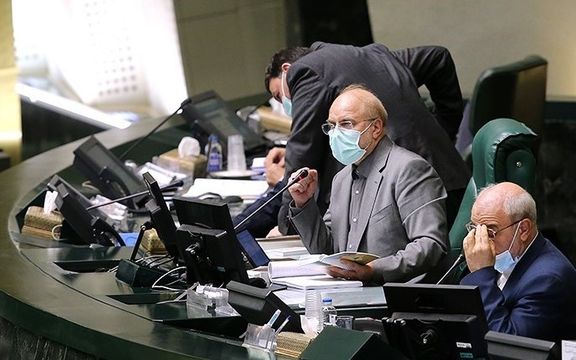
While Iran's president is struggling amid deteriorating economic situation and protests, lawmakers are again calling for impeachment of his economic ministers.
The move could be an attempt to divert attention from the sharp devaluation of the Iranian currency in the recent days, which has brought the rate of exchange for the US dollar to an all-time high of 318,000 rials. The devaluation heralds more inflation, already standing above 40 percent with food prices rising sharply in May. It could also be an attempt to show that the parliament or Majles is active as protests to government corruption and ineptitude continue.
However, it could be just as well a genuine attempt by Majles to make things right as the government seems to be incapable of mitigating the country's problems with its current makeup.
During the past months lawmakers trying to impeach several ministers including Labor Minister Hojjat Abdolmaleki and Industry Minister Reza Fatemi Amin, complained that there is more than enough support for the impeachment motion, but the Majles presidium opposes to move, apparently to give more time to Raisi and his ministers to catch up with worsening crises in the country.
This time it is different as according to ILNA website in Tehran, a member of the Majles presidium, Ahmad Amirabadi told the state TV on Monday, "We are waiting for the President to reshuffle his cabinet,” urging parliament members to wait.
Speaking on national television, Amirabadi said at least three or four ministers, one vice president and several provincial governors need to be replaced, without mentioning any names.
Amirabadi accused some of Raisi's ministers of thinking only about the interests of their hometowns, as if they are a member of parliament. He added: "It is good that current [hardliner] lawmakers helped a revolutionary government to take over the affairs of the state, but this should not lead to undermining of the parliament's supervisory role."
Meanwhile, in a May 31 report, moderate news website Rouydad24 said that parliament may not be willing to extend the time it gave Raisi to reshuffle his ministers, and lawmakers have already started to warn Raisi and even threaten him over the imminent impeachment of his ministers.
The website quoted several lawmakers as having said that "The Majles should quickly table impeachment motions if Raisi refuses to make changes in his cabinet." The lawmakers have also said: "Majles is considering to impeach five to six cabinet ministers, but the cases of the labor and industry ministers are being discussed more seriously."
Lawmaker Lotfollah Siahkali told Rouydad24 that "some of these ministers will certainly lose their post if they are ever summoned to the Majles." Apart from the two ministers, according to Amirabadi, there is also strong support for the impeachment of Communication Minister Isa Zarepour.
The move to impeach ministers seems more serious than ever as Majles Speaker Mohammad Bagher Ghalibaf, who a few months ago suggested to delay radical moves, last week changed his tune: "If the government's missions are not accomplished, the Majles might use its supervisory authority including impeachment and legal action."
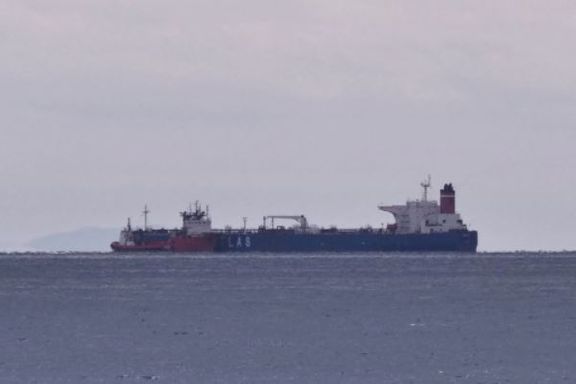
The ranking member of US Senate Foreign Relations Committee says the seizure of two Greek vessels by Iran’s Revolutionary Guard is yet another appalling example of Iran’s regional terrorism.
Idaho’s Republican Senator Jim Risch said in a tweet on Tuesday that “The Biden Admin must prioritize efforts to address this egregious behavior, which continues to threaten the US, its partners, and freedom of navigation everywhere.”
On Monday, US Secretary of State Antony Blinken condemned the "unjustified seizure" of the Greek-flagged vessels, saying, "Iran's continued harassment of vessels and interference with navigational rights and freedoms are a threat to maritime security and the global economy.”
France has also denounced the capture of the oil tankers in Persian Gulf waters, urging the Islamic Republic “to immediately release the crews and vessels."
The European Union also issued a statement on Sunday to express its serious concern to the Islamic Republic following the capture of the oil tankers, and called for transparency, de-escalation and a fast resolution of the issue.
On Friday, Iran’s Revolutionary Guard seized the tankers in helicopter-launched raids in the Persian Gulf about a week after the confiscation of Iranian oil from a tanker held off the Greek coast and its transfer to the US.
Iran said on Saturday that the crew of two Greek tankers had not been detained and are on board their vessels.
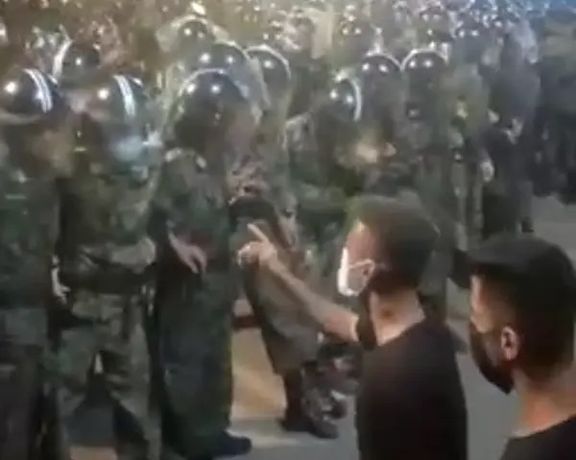
Security forces in Iran have increased pressure on Iranian filmmakers who issued a statement in support of popular protests urging security forces to exercise restraint.
Iranian filmmaker Mohammad Rasoulof said on Tuesday that the signatories of the statement – headlined ‘Lay Down Your Arms’ -- have been threatened and intimidated by the Islamic Republic authorities to rescind their signatures.
"They think cinema is their barracks where they can use militarism to silence the artists' protest against violence,” he said.
In their open letter published on Sunday, a large group of film makers and actors called on security forces responsible for suppressing protests to lay down their weapons. Citizens have been demonstrating since last week against the rulers of the clerical regime.
Without directly mentioning the statement, the Iranian Minister of Culture and Islamic Guidance warned Monday night, “We will punish those who seek to stand in the way of IRGC and guardians of Iran’s security by releasing worthless statements and delusional remarks.”
In reaction to the letter, Cinema Press website, with links to the security apparatus, quoted an “informed source” as saying that anyone who incites armed forces to rebel, flee, or surrender will face from six months to 10 years of prison.
The ongoing protests began when a 10-story building collapsed in Abadan, in the oil-rich Khuzestan province May 23, leaving 36 people dead while dozens are still missing.
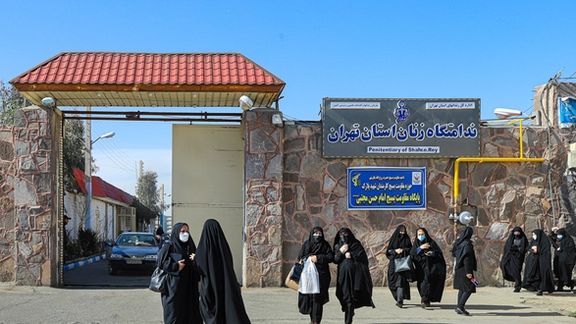
The attorney of several jailed Iranian activists, says the lives of political prisoners in Qarchak women's prison are in danger, implying that the authorities are using other prisoners to threaten them.
In an interview published on Tuesday, Mostafa Nili said a message received from his client, civil and human rights defender Narges Mohammadi, and photojournalist Alieh Motalebzadeh said their lives are danger by one of the prisoners who is charged with murder and threatening to kill them to become famous.
Pointing out that the prisoner had no "previous problems or conflicts" with Mohammadi and Motalebzadeh, he said that such threats without any history of disputes or conflicts seemed "suspicious".
Nili also said that following the death threat, several inmates with a history of violent crimes tried to provoke clashes twice with the prisoners of the political ward during visits to the prison infirmary.
He added that the issue began with the threats to Mohammadi and Motalebzadeh, but since Sunday other political prisoners have also been threatened. Nili noted that prison authorities have not taken any action.
He said that such incidents are reminiscent of similar clashes between criminal prisoners and political detainees in recent years, such as the cases for Golrokh Ebrahimi Iraee, Atena Daemi, Shakila Monfared, and Saba Kord Afshari who were beaten in apparent clashes with other inmates.
In 2019, political prisoner Alireza Shir-Mohammad-Ali was killed in Tehran’s Fashafoyeh Prison after he was stabbed in the neck and stomach by two inmates of the general ward.
Earlier in the year, Reporters Without Borders expressed concern for the lives of jailed activists who have been transferred to detention centers known to mistreat prisoners, including Qarchak women’s prison.
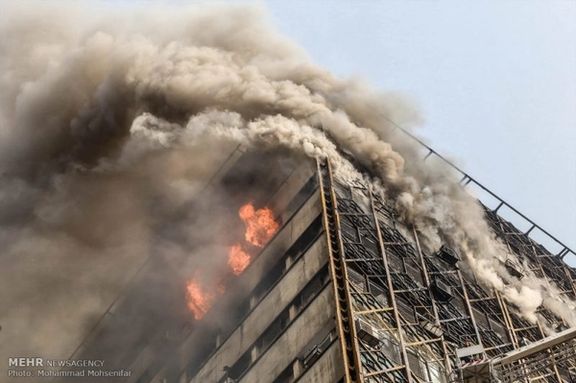
Following the release of a list of 129 unsafe buildings in Tehran, the former head of the City Council of the capital said Monday security authorities had been against the publication of the list in the past.
In an interview with Ensaf News on Monday, Mohsen Hashemi Rafsanjani said that the list had been available since at least 2020 but security authorities pushed to bury the list of high-risk buildings in Tehran. Ensaf News last week published the list, citing the fire department.
Ghodratollah Mohammadi, the new head of Tehran Fire Department, who said on Sunday that "we will definitely publish the list of 129 high-risk buildings in Tehran with the coordination of the prosecutor's office," rejected the validity of the list on Monday. "It is invalid and has nothing to do with the Tehran fire department," he said.
He had said on Sunday that there are more than three thousand cases of such buildings in the capital.
The issue of unsafe buildings has become hot as protests began last Monday, when a 10-story building collapsed in Abadan, leaving 34 people dead and an equal number missing. It quickly became apparent that the owner was a powerful and well-connected businessman who had disregarded regulations and building codes, being backed by officials, who might have had their own financial interests.
Anti-government protests continue in Iran’s oil-rich Khuzestan province as large number of security forces have been mobilized to crack down.